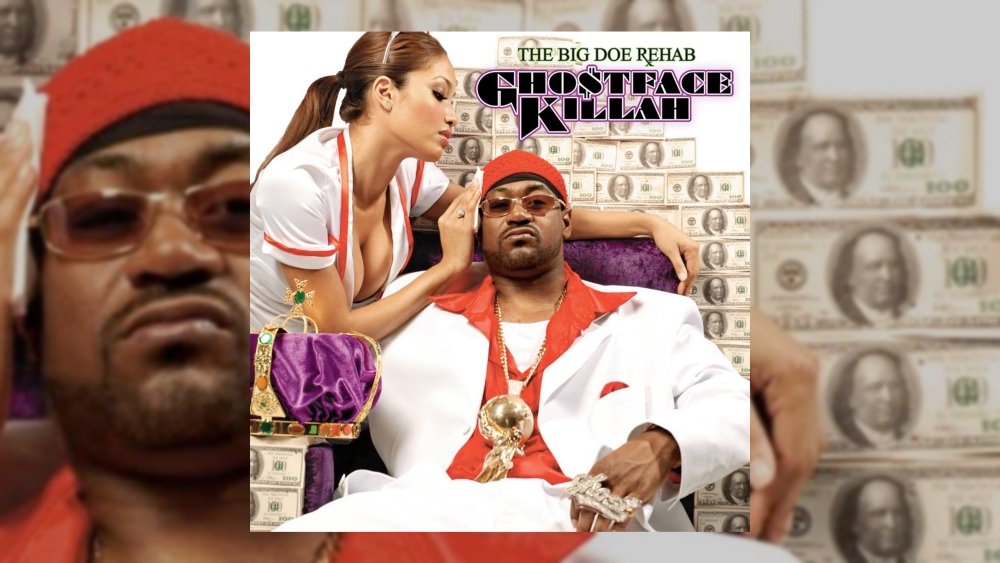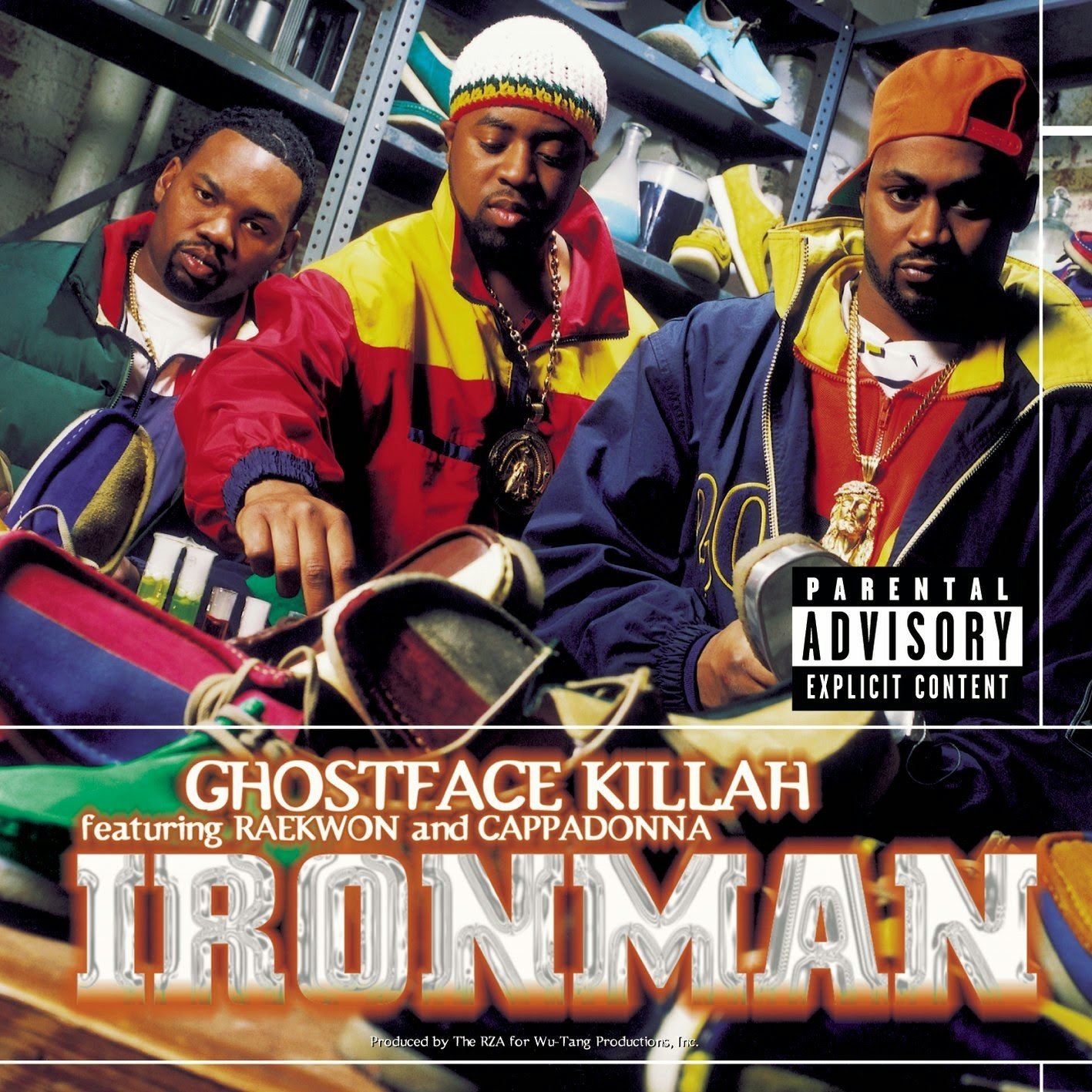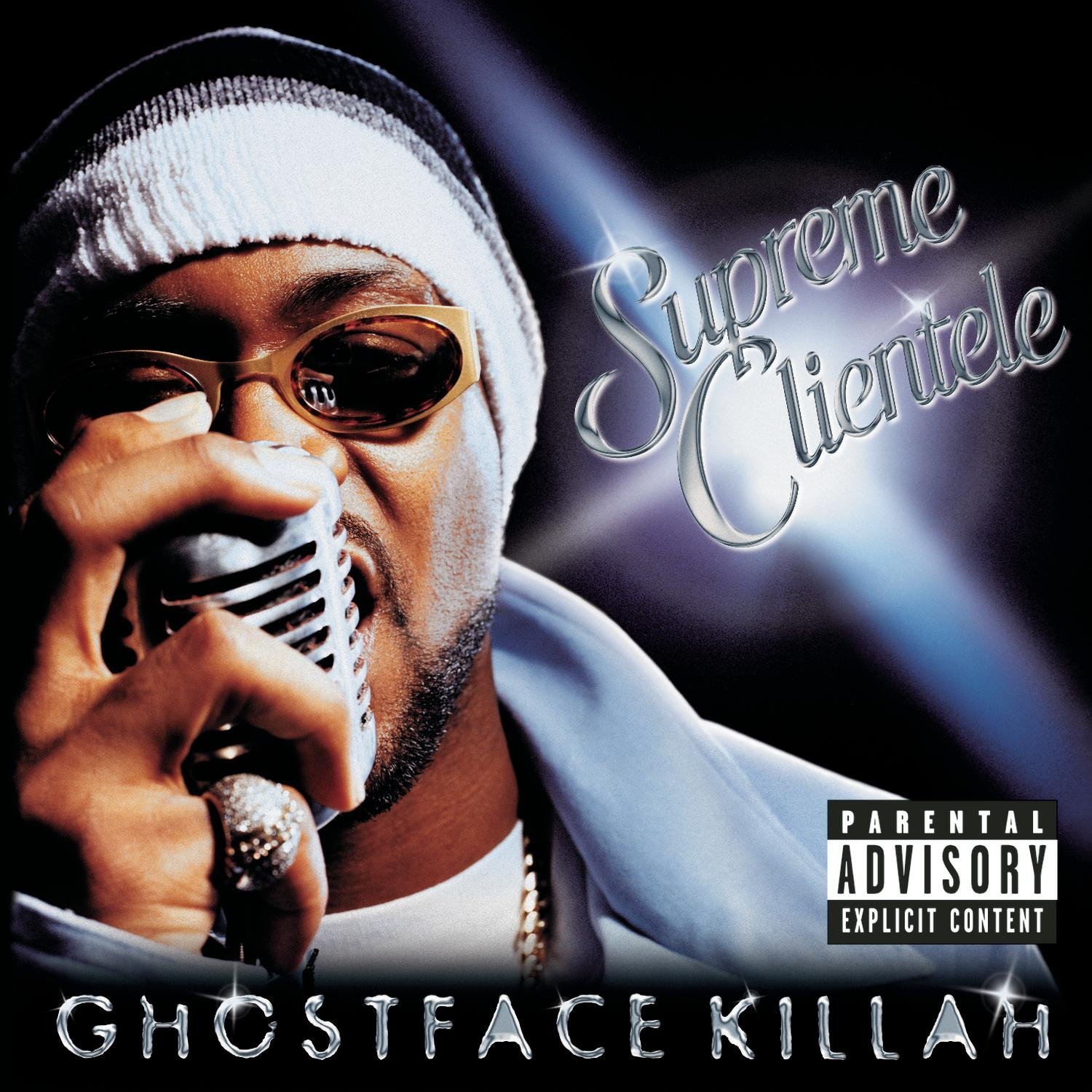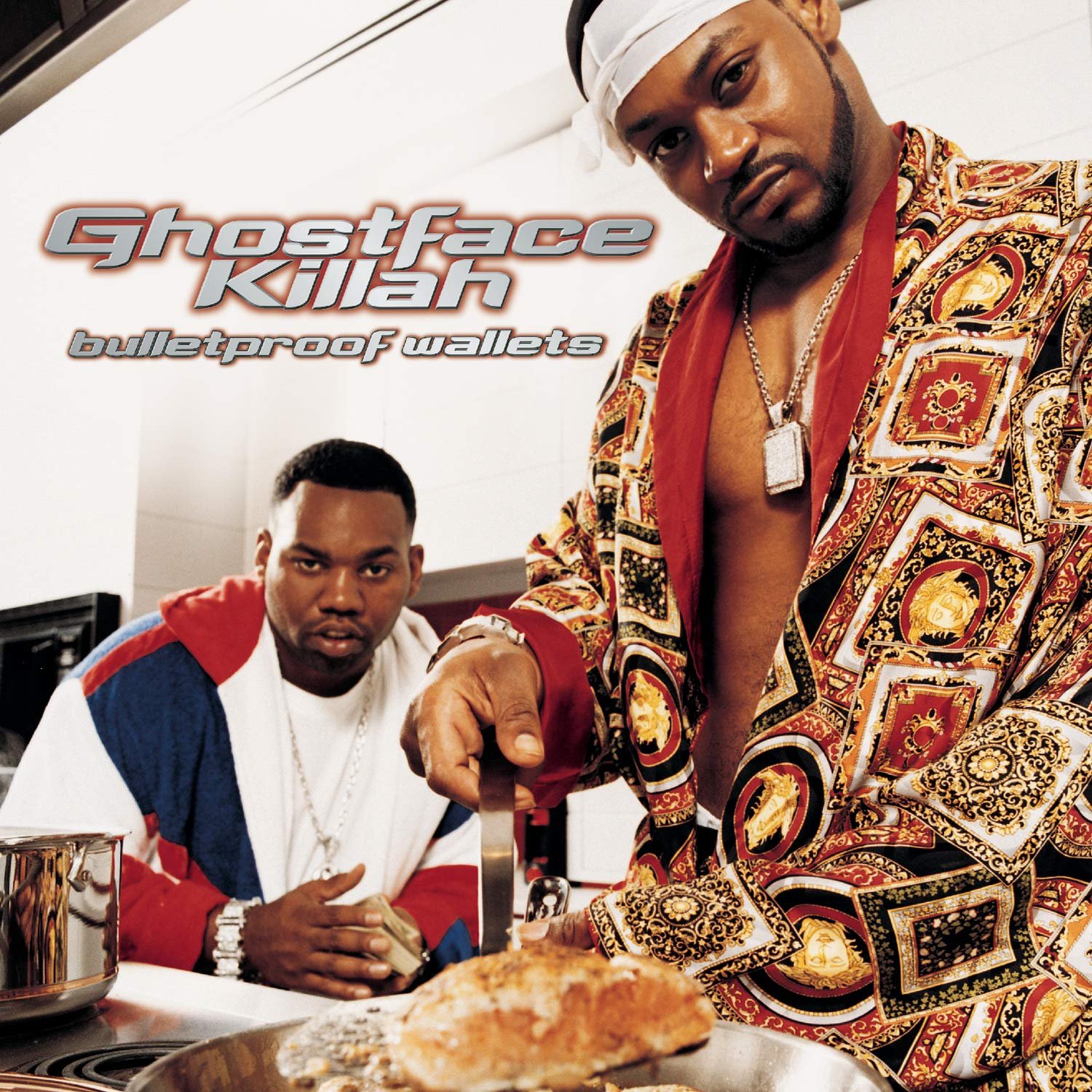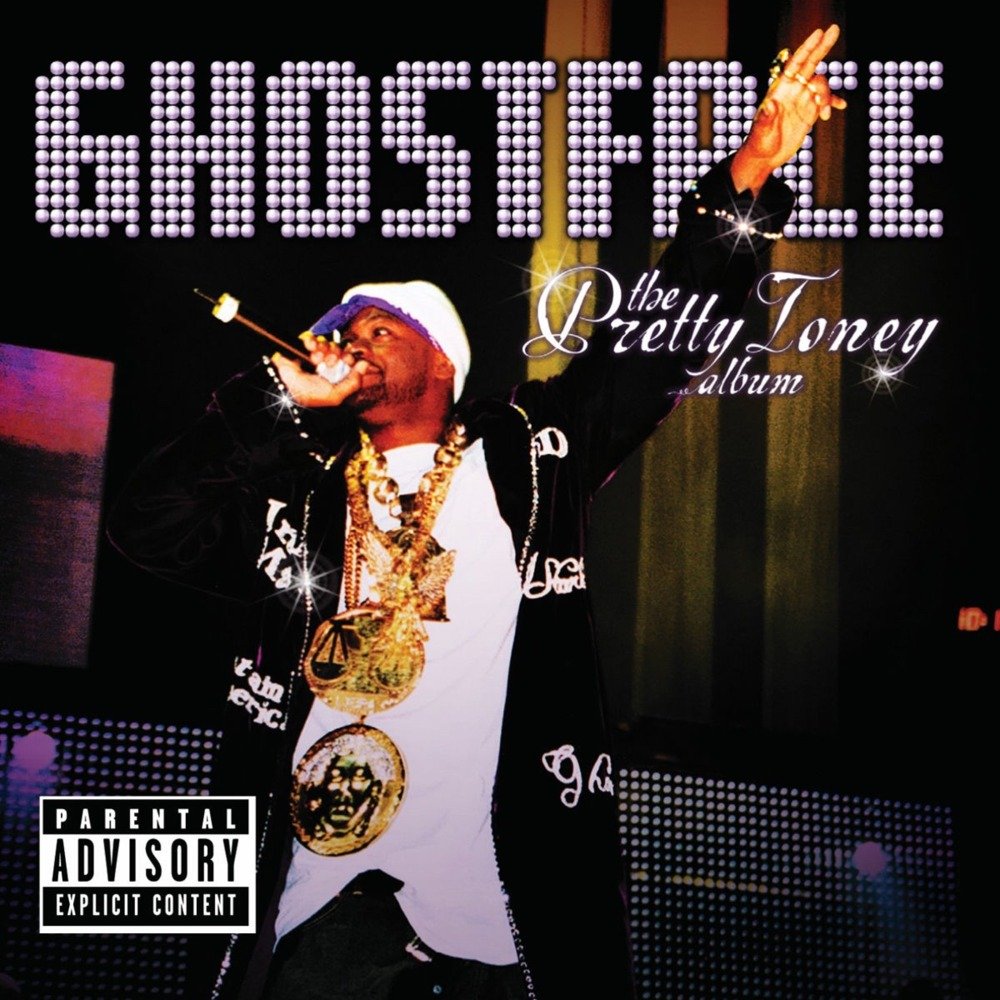Happy 15th Anniversary to Ghostface Killah’s seventh studio album The Big Doe Rehab, originally released December 4, 2007.
As an Amazon affiliate partner, Albumism earns commissions from qualifying purchases.
A decade-and-a-half after its release, The Big Doe Rehab by Dennis “Ghostface Killah” Coles is oddly hard to categorize. It seems like an album that would be used to fulfill contractual obligations, as it was Ghostface Killah’s third solo album in a two-year period, and may or may not have been composed of tracks left over from previous album recording sessions. Def Jam Records released it at nearly the end of the calendar year with little fanfare, so it almost screams “tax write off!” However, it’s still a solid entry into the beloved Wu-Tang Clan emcee’s catalogue.
The Big Doe Rehab isn’t Ghostface’s best album. Honestly, it’s comfortably outside of his top five. Ghostface viewed this album as a dedication to his own riches, finding himself in “rehab” for being addicted to having too much money. While chunks of the album are dedicated to his financial success, it’s at its best when Ghostface plays to his usual strengths.
Big Doe Rehab has everything that people talk about when they describe why they love Ghostface: the wild slang, the creative and vivid storytelling, the top-notch shit-talking, the tiny details that give everything its full luster. It only falters when Ghost gives in to his worst instincts or doesn’t bother to try.
It is indeed hard to tell how Big Doe Rehab came together. Some of the time, it seems cobbled together from remnants of the Fishscale/More Fish recording sessions, but some of it could be material he recorded afterwards. There’s a lot of overlap with respect to the producers that work on all three projects, but some of that could just be Ghostface continuing to work with guys who gave him beats that he liked.
If nothing else, Sean C & LV of the Hitmen have a substantial presence on Big Doe Rehab. Not even a month before Big Doe Rehab was released, six of the duo’s tracks had appeared on Jay-Z’s American Gangster, forming the musical spine of the album. The team produced Ghostface’s “Momma” on Fishscale, and contributes five more for this album, providing the album some of its signature moments.
For Big Doe Rehab, some of the pair’s production has a harder edge, like the album’s opening track, “Tony Sigel AKA Barrell Brothers.” Over a hard-charging guitar-loop from Al Wilson’s “Falling (In Love With You),” Ghostface and Philly’s Beanie Sigel each contribute a verse, kicking that box-cutter rap, ruling their street kingdom with iron fists. Ghostface leads off with, “You know, we be the boys clocking the graveyard shift / Big bundles, counting our C.R.E.A.M., burning the lazer spliff / My man, jumps out the whip with the AR-fifth / And we barred from plenty of parties ’cause we start shit.” Meanwhile, a recently out-of-prison and resurgent Beanie Sigel attacks the track with ferocity, rapping, “Empty out the whole clip then reload / Shotgun barrel leave it smoking like a broke stove / Yeah, and I’m all about that bullshit / The casket, the hearse and the pastor in the pulpit.” He ends his verse just as strong, proclaiming, “you going to have to cut me out the track like cancer.”
Listen to the Album:
Ghostface continues with his strong performances over Sean C & LV’s production. The Rare Earth-sampling “We Celebrate” is the album’s best example of Ghostface celebrating the opulence that surrounds him. Fresh off of a deleted appearance in the film Iron Man, Ghostface attempts to fashion himself as billionaire Tony Stark, whose name he has long used as his Wu-Gambino alter ego. Here he leads off the song with, “Stones on every arm, the crib is $10 million / The corks from Dom Perignon can’t reach my ceiling / Four maids with four grenades / When the sun’s in my face, all I do is lower the walls for shade.”
Ghostface has always been one of the most unique storytellers hip-hop has ever witnessed. His tales are usually straight forward enough, but filled with vivid details and off-the-wall non-sequiturs. And he uses quite a bit of humor. “Yolanda’s House” is one of the album’s best tracks, starting off as a more laid-back sequel to his single “Run.” After getting caught slanging drugs in the projects, he struggles to evade the police on foot, scrambling through “bushes and backyards.” After finding safe harbor with a female admirer, he enjoys some sexual attention before having to flee again, escaping “pigs who’s want revenge like Porky’s.” He eventually decides to hide in Method Man’s apartment, only to bust in on him in the midst of receiving his own sexual attention. With a memorable verse, Method Man struggles to maintain some privacy and dignity, while lambasting Ghostface for showing up unannounced, rapping, “She’s asthmatic and you laughing, son / I bump my toe on the nightstand just running trying to grab the gun / Shit’s real, man, you spazzing, dun / There comes a time in a man's life, he gotta toss his pack and run.”
Some of Big Doe Rehab’s best moments come when Ghost is being deadly serious. “Walk Around” is one of the best descriptions of PTSD and guilt ever recorded. After a nameless assailant slaps his girl, Ghostface responds by shooting the man at point-blank range, twice in the stomach and once in the face. He goes into shock immediately afterwards, fleeing in a haze and throwing up all over his friend’s getaway car. He finds himself haunted by visions of the shooting, rapping, “Flashbacks to me blowing his brains out / All I remember is my shirt; I couldn’t get them goddamned stains out / Oxy cleans weak ’round the chest area / Right-hand side, I'm plucking off lil’ pieces of meat.” Regardless of being traumatized and “lost to reality,” he still insists that he’s going to remain the warrior don that he was before the shooting.
Ghostface hosts three additional posse cuts on Big Doe Rehab: “Yapp City,” “Rec Room Therapy,” and “Paisley Darts.” “Paisley Darts” feels like a traditional Wu-Tang banger, with Ghost joined by Method Man, Raekwon, Cappadonna, Trife Da God, and Sun God. The latter of those five is Ghostface’s full-grown son, who may not have the mic presence of his father, but still manages to shine.
The best of the three posse tracks is “Rec Room Therapy,” which features Ghostface, Raekwon and U-God rapping over the solid drums and flutes taken from a sample of Isaac Hayes’ “(They Long To Be) Close To You.” U-God contributes a memorable verse, promising, “Yo, I’m down for the get down, hit the town, sick the bloodhounds on ’em / I rip clowns, I flip pounds, I spit rounds / I’m on the prowl, my stomach growl, crushed by the crowd / Rush through Loud Records, drop mushroom clouds.”
The album sags a bit at times, getting dragged down by some of Ghostface’s tales of his own prosperity. On “White Linen Affair (Toney Awards)” Big Ghost, joined by the consistently mediocre Shawn Wigs, describes the setting at his annual awards show, but mostly just lists off names of rappers, R&B artists, and other celebrities. The repeated interludes just make the song drag. It’s one of the worst songs that Big Ghost has ever recorded.
With “Supa GFK,” Ghost’s frequent tactic of “just rapping over an entire early ’70s soul song, vocals and all” finally reaches the point of absolutely diminishing returns. “Holla,” released three years earlier, had Ghostface rapping over the entirety of Delfonics’ “La, La, La Means I Love You,” and mimicking the groups’ singing cadences as appropriate. The song sounded inspired at the time. However, Ghostface rhyming over Johnny “Guitar” Watson’s “Superman Lover” with “Super GFK” just sounds tired.
The album does recover and finish strong. Despite the presence of two solid bonus tracks, its proper ending feels like the sequel to Fishscale’s “Shakey Dog,” titled, aptly, “Shakey Dog Featuring Lolita.” Produced by Sean C & LV, it’s a hyper-detailed story of Ghostface and Raekwon meeting in a darkened card club. Over a loop of El Michel Affair’s “Musing to Myself,” they describe a deadly encounter with Lolita. The Colombian beauty is apparently responsible for the death of Frank, Ghostface’s cohort on the original “Shakey Dog.” The scene soon devolves into violence, with the duo killing Lolita as she attempts to flee the club. In a disturbing moment, Ghostface threatens to commit necrophilia on the would-be assassin as she lays dying on the club’s floor. But the cops show up, and again the scene again becomes dominated by bullets and death, all while Salsa plays on the jukebox. The song is one of the more interesting and vivid story tracks on the album, and, production-wise, foreshadows the live-band direction Ghostface would go in future collaborations with Adrian Younge, BADBADNOTGOOD, and the Revelations.
Ghostface continued his prolific recording in the years that followed. In 2010, he released Apollo Kids, one of his better overall albums. In recent years, he’s taken to recording concept/extended-narrative based albums, often with the aforementioned live bands. Some, like the BADBADNOTGOOD collaboration Sour Soul (2015), have been extremely dope. Some, like Twelve Ways to Die (2013) with Adrian Younge have been well-intentioned but don’t quite hit the mark. And some, like the 2015’s Twelve Ways to Die sequel, just sound phoned in.
Enjoying this article? Click/tap on the album covers to explore more about Ghostface Killah:
Regardless of its origins and the environment that surrounded its creation, Big Doe Rehab is a strangely enduring album. Despite seeming like a cast-off, it has all the hallmarks of what has made Ghostface one of the greatest emcees in hip-hop, and has some of his most underrated songs in his discography. While Ghostface wouldn’t always remain bulletproof, at least during the ’00s, he was always interesting.
As an Amazon affiliate partner, Albumism earns commissions from qualifying purchases.
LISTEN:
Editor's note: this anniversary tribute was originally published in 2017 and has since been edited for accuracy and timeliness.

